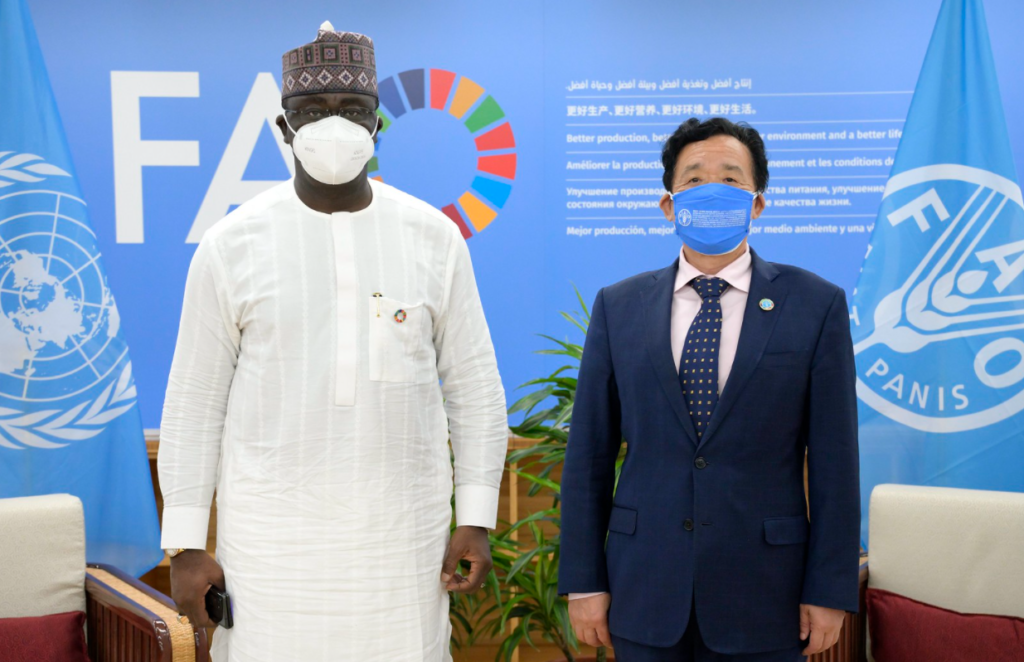
FAO Director-General QU Dongyu meeting with Minister of State, Budget and National Planning of Nigeria, H.E. Prince Clem Ikanade Agba. Pre-Summit of the United Nations Food Systems Summit 2021.
Photo credit: FAO/Carlo Perla
The Federal Government of Nigeria has put in place adequate structural frameworks to meet the 2030 Agenda for Food System Transformation.
Minister of State for Budget and National Planning, Prince Clem Ikanade Agba, stated this at the Pre-Summit of the United Nations Food Systems Summit in Rome, which held from Monday, July 26 – 28, 2021.
The minister, who presented Nigeria’s statement on National Pathways for Food Systems Transformation, explained that the country was in the process of developing a subnational food systems dashboard that would describe and diagnose the food system in each of the country’s 36 states and the Federal Capital Territory, FCT.
According to the minister, to achieve the Sustainable Development Goals and the 2030 Agenda, Nigeria would collaborate with member states that had grappled with food systems concerns similar to that of Nigeria.
He said to ensure that transformative pathways appropriately targeted population groups with the most potential to benefit from them, “we are reviewing our existing policies, strategies, and legislations, rooted in a new narrative for our national food systems to better situate a range of game-changing considerations, and build in more entry points for the necessary enabling environment to ensure adequate structural frameworks for food systems transformation.
“We have also commenced discussions to establish, integrate and institutionalize a food systems transformation support facility that will be linked to financial instruments and provide technical assistance and coordination for implementing transformative actions.”
Prince Agba, in the presentation, said key priorities had been identified around the National Food Systems, which the country would focus on.
This, according to him, included delivering high incomes and reducing poverty among small-holder farmers; empowering women and youth to have greater access to food, production resources and processing inputs, greater involvement in decision making and increased asset ownership.
Other priorities are: reduction in price of nutritious foods; development of guidelines that educate the public on healthy diets and food choices as well as formulation by industries; and the development and deployment of early warning systems in environment and social –cultural shocks.
Agba lamented that the country was facing a significant food system challenge as other nations of the world, adding that transforming food systems was “therefore a critical issue confronting the world today including Nigeria.”
He said: “This is in addition to challenges such as insecurity, poor infrastructure, lack of access to water and proper sanitation.
“The poor and the vulnerable including women, girls and youths suffer greatly from these, also exacerbated by the COVID-19 pandemic.
“In view of the above challenges, we have engaged with numerous stakeholders over the past several months, to understand their food systems experiences and needs.
“A total of 40 dialogues with 26 of the dialogues convened by the Nigerian Government, and 14 independent dialogues convened by non-state actor groups.”
The minister, however, acknowledged the giant step by the Secretary General of the UN and his team to convene a global Food Systems Summit to trigger a renewed commitment to the SDGs.
Nigeria’s team to the summit comprised the minister of state (budget and national planning) and the permanent secretary in the ministry, Mrs Olusola Idowu.
